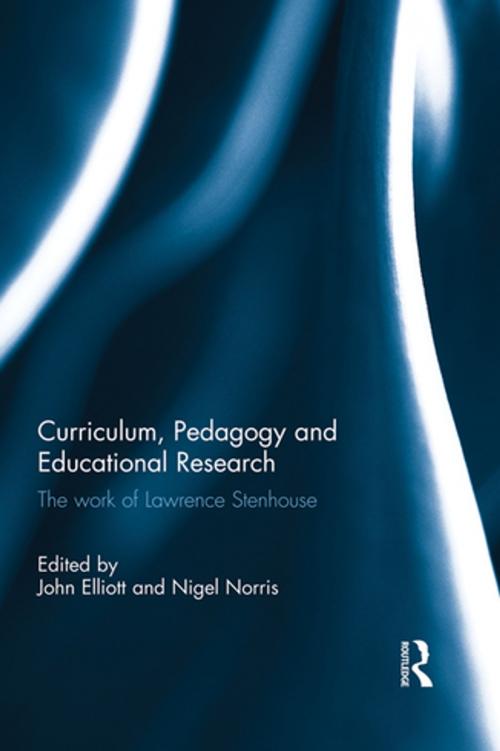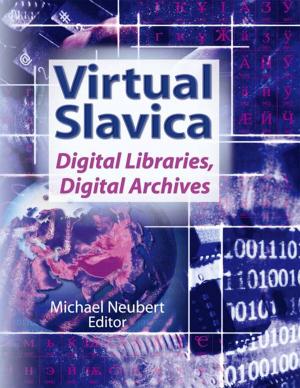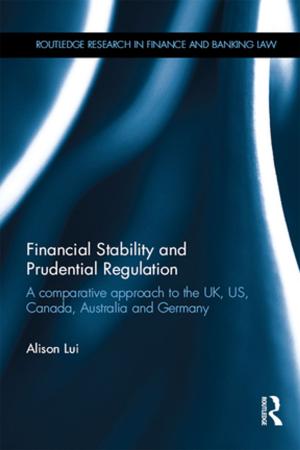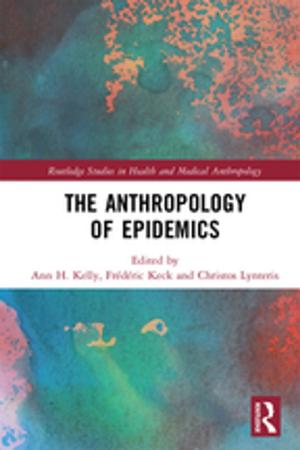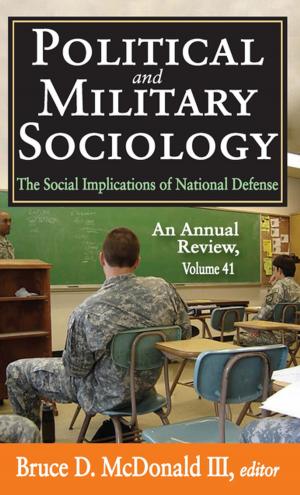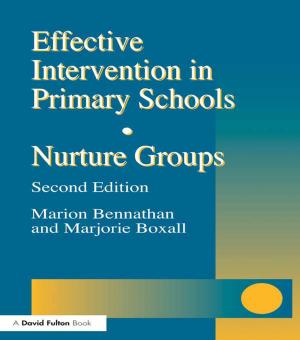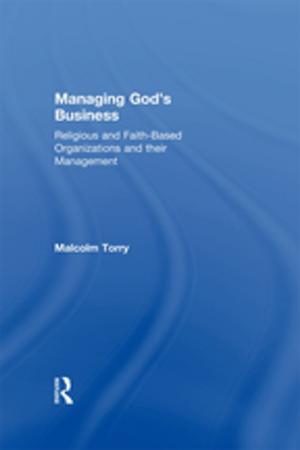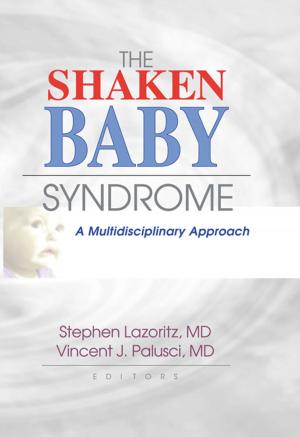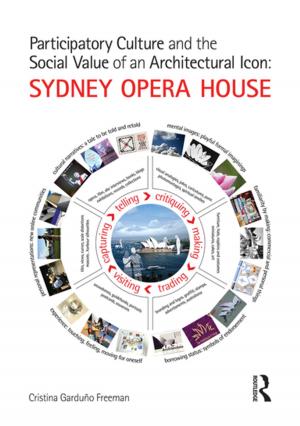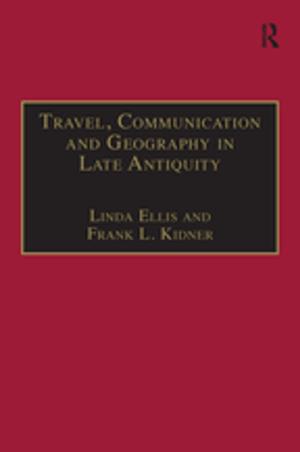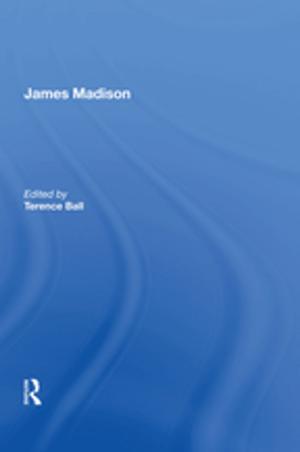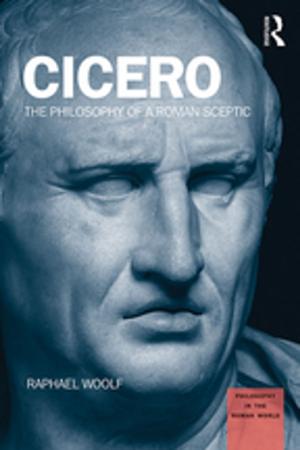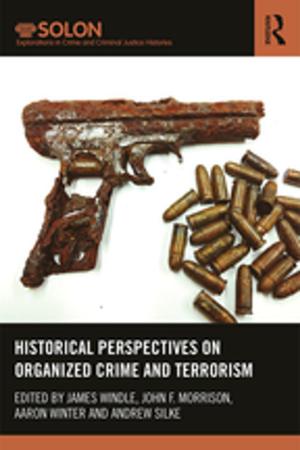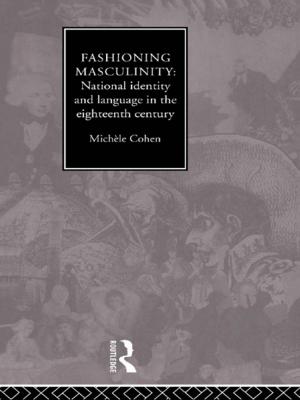Curriculum, Pedagogy and Educational Research
The Work of Lawrence Stenhouse
Nonfiction, Reference & Language, Education & Teaching, Educational Theory, Curricula| Author: | ISBN: | 9781136733888 | |
| Publisher: | Taylor and Francis | Publication: | March 15, 2012 |
| Imprint: | Routledge | Language: | English |
| Author: | |
| ISBN: | 9781136733888 |
| Publisher: | Taylor and Francis |
| Publication: | March 15, 2012 |
| Imprint: | Routledge |
| Language: | English |
Lawrence Stenhouse was one of the most distinguished, original and influential educationalists of his generation. His theories about curriculum, curriculum development, pedagogy, teacher research, and research as a basis for teaching remain compelling and fresh and continue to be a counterpoint to instrumental and technocratic thinking in education. In this book, renowned educationalists describe Stenhouse’s contribution to education, explore the contemporary relevance of his thinking and bring his work and legacy to the attention of a wide range of students, teachers, teacher educators and others involved in education.
Stenhouse saw the primary aim of education as the development of individuality through a creative and critical engagement with culture. He was an early advocate of inclusive education and was committed to making available to all pupils an education that was challenging and empowering. For Stenhouse many of the problems of education stemmed not so much from its content as from the terms and conditions under which students were required to access it. Consequently he pioneered an approach to curriculum reform that stressed the quality of the educational process and the values that defined it, as opposed to ‘rational curriculum planning’, which stressed the pre-specification of measureable learning outcomes. Stenhouse devised the curriculum reform movement’s most ambitious strategy, ‘the process model’, and was its principal theorist. His idea of ‘the teacher as researcher’ lay at the heart of this strategy as the means by which the values that define a worthwhile educational process could be progressively realized by teachers in concrete forms of action within their classrooms and schools.
What marked out Stenhouse’s unique contribution to the field of curriculum was his distinctive conceptualisation of the relationship between the teacher (authority), the learner (autonomy) and the subject matter (understanding). Founded on his epistemological scepticism and forged in his encounters with expertly discerning teachers who valued and nurtured the intellectual independence of students, Stenhouse acquired an acute appreciation of the ways in which teaching enhances or inhibits, develops or displaces the potential for autonomous thinking of students. He changed the relationship between curriculum theory, educational research and teachers; placing teachers right at the heart of the curriculum development process and the teacher as researcher at the heart of teacher professionalism.
Lawrence Stenhouse was one of the most distinguished, original and influential educationalists of his generation. His theories about curriculum, curriculum development, pedagogy, teacher research, and research as a basis for teaching remain compelling and fresh and continue to be a counterpoint to instrumental and technocratic thinking in education. In this book, renowned educationalists describe Stenhouse’s contribution to education, explore the contemporary relevance of his thinking and bring his work and legacy to the attention of a wide range of students, teachers, teacher educators and others involved in education.
Stenhouse saw the primary aim of education as the development of individuality through a creative and critical engagement with culture. He was an early advocate of inclusive education and was committed to making available to all pupils an education that was challenging and empowering. For Stenhouse many of the problems of education stemmed not so much from its content as from the terms and conditions under which students were required to access it. Consequently he pioneered an approach to curriculum reform that stressed the quality of the educational process and the values that defined it, as opposed to ‘rational curriculum planning’, which stressed the pre-specification of measureable learning outcomes. Stenhouse devised the curriculum reform movement’s most ambitious strategy, ‘the process model’, and was its principal theorist. His idea of ‘the teacher as researcher’ lay at the heart of this strategy as the means by which the values that define a worthwhile educational process could be progressively realized by teachers in concrete forms of action within their classrooms and schools.
What marked out Stenhouse’s unique contribution to the field of curriculum was his distinctive conceptualisation of the relationship between the teacher (authority), the learner (autonomy) and the subject matter (understanding). Founded on his epistemological scepticism and forged in his encounters with expertly discerning teachers who valued and nurtured the intellectual independence of students, Stenhouse acquired an acute appreciation of the ways in which teaching enhances or inhibits, develops or displaces the potential for autonomous thinking of students. He changed the relationship between curriculum theory, educational research and teachers; placing teachers right at the heart of the curriculum development process and the teacher as researcher at the heart of teacher professionalism.
